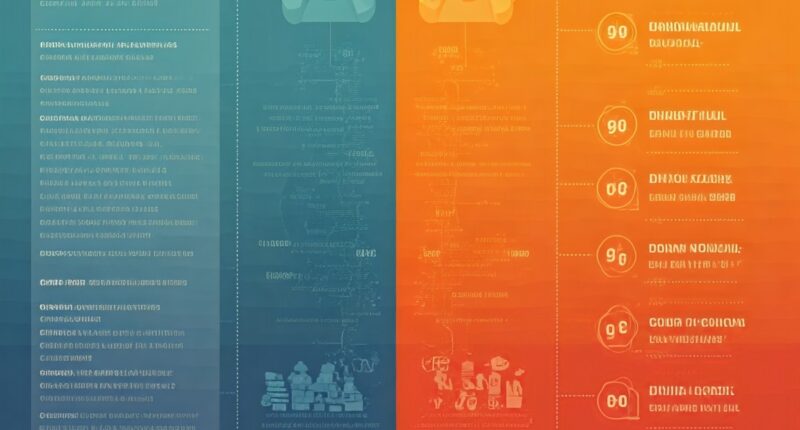Introduction to Video Game Playtime
When it comes to gaming, one burning question often arises: How Long to Beat a game? The answer can be as varied as the titles available on the shelves. Some players breeze through in just a few hours, while others may find themselves engrossed for days or even weeks. Whether you’re trying to squeeze in some gameplay during your lunch break or planning an all-night marathon, understanding what influences playtime is crucial.
In this blog post, we’ll dive into the factors that determine how long you’ll spend battling enemies, solving puzzles, and exploring vast worlds. From the genre of the game to its difficulty level—there’s much more at play than just your skill level or available time. So grab your controller and let’s explore!
Factors that Affect Game Length
Game length can vary greatly based on several key factors. One major element is the type of game being played. Open-world adventures often offer extended playtime due to their vast landscapes and numerous quests.
Difficulty level also plays a crucial role. A challenging title may take longer as players grapple with tougher enemies and complex puzzles, while easier games allow for quicker completion.
Exploration adds another layer to playtime. Games filled with side quests encourage players to venture off the beaten path, stretching out their experience considerably.
Whether you’re diving into multiplayer or single-player modes can change everything. Multiplayer games often involve shorter sessions but may lead to endless hours spent in competitive matches or cooperative campaigns, keeping players engaged far beyond initial expectations.
A. Type of Game
The type of game you choose plays a crucial role in determining how long it will take to beat. Each genre brings its unique structure and pacing, affecting overall playtime.
For instance, open-world games like “Skyrim” or “Breath of the Wild” invite players to explore vast landscapes. Players can easily get lost in side quests and hidden treasures, extending their experience significantly.
On the other hand, linear story-driven games often have more defined paths. Titles such as “The Last of Us” or the “Uncharted” series offer gripping narratives that guide players through a set storyline, resulting in shorter completion times.
Additionally, genres like strategy games demand thoughtful planning and decision-making. Games such as “Civilization VI” can stretch for hours or even days if you’re immersed in building an empire.
Each game type offers a different kind of engagement that shapes your gaming journey distinctly.
B. Difficulty Level
The difficulty level of a game plays a significant role in how long it takes to complete. Players often find that higher difficulties require more time, patience, and skill. Mastering tough challenges can extend gameplay significantly.
For instance, games like Dark Souls are notorious for their punishing difficulty. Players may spend hours on a single boss fight or exploring treacherous areas. Each defeat becomes a lesson learned, adding layers to the experience.
Conversely, casual games designed with lower difficulty settings allow players to breeze through content quickly. The joy lies in exploration rather than challenge.
Some titles even offer adjustable difficulty levels. This feature caters to different player preferences and affects overall playtime accordingly. Whether you’re seeking an intense challenge or a relaxed journey shapes your gaming adventure—and the clock keeps ticking as you play!
C. Side Quests and Exploration
Side quests and exploration can significantly extend your gaming experience. They often provide rich stories, unique characters, and hidden treasures that add depth to the main narrative.
Players who dive into these optional challenges may find themselves lost in expansive worlds. For instance, tasks such as hunting rare creatures or solving ancient puzzles can consume hours of playtime. It’s not just about completing the game; it’s about immersing yourself in every detail.
Exploration also rewards curiosity. Discovering secret areas or lore-filled locations enhances your understanding of the game universe. The thrill of uncovering something unexpected adds an irresistible layer to gameplay.
Games like “The Witcher 3” are known for their engaging side quests, which often feel as compelling as the primary storyline itself. Thus, opting for a more thorough approach can drastically influence how long you spend playing any title.
D. Multiplayer vs Single Player
Multiplayer and single-player experiences offer distinct playtimes. In multiplayer games, the duration often depends on community dynamics. Players can engage in endless matches or cooperative campaigns, making it hard to pin down a fixed time.
Single-player games usually present a more structured narrative. Here, developers design specific missions and quests that guide players through the storyline. This leads to a clearer estimate of how long it takes to complete the game.
The social aspect of multiplayer can also extend playtime significantly due to player interaction and ongoing events. Gamers might spend hours honing skills or participating in seasonal challenges.
Single-player titles may attract completionists who want every achievement or collectible, stretching their gaming experience even further. Each mode offers its appeal while influencing overall playtime differently depending on individual preferences and styles.
Examples of Games with Varying Playtimes
When it comes to playtime, some games challenge your dedication more than others. Open-world adventures like “Skyrim” and “The Legend of Zelda: Breath of the Wild” offer countless hours of exploration. Players can easily lose themselves in side quests or simply wander through vast landscapes, making completion times vary widely.
In contrast, linear story-driven titles such as “The Last of Us” and the “Uncharted” series provide a more streamlined experience. Their focused narratives typically lead players from beginning to end without excessive detours. A dedicated run might take around 15-20 hours.
Strategy games like “Civilization VI” introduce another layer altogether. These complex titles often involve lengthy sessions filled with planning and decision-making that can stretch into hundreds of hours depending on how you choose to engage with them. Each game type presents its unique rhythm that significantly alters how long it takes to beat them.
A. Open-World Games – Skyrim, Breath of the Wild
Open-world games like Skyrim and The Legend of Zelda: Breath of the Wild offer vast landscapes ripe for exploration. Players can easily lose themselves in these rich universes, where every corner hides a secret or a quest.
In Skyrim, you’re not just following a linear path; you have the freedom to roam mountains, delve into dungeons, and interact with countless NPCs. Each decision impacts your journey, leading to unique playthroughs that can stretch well beyond 100 hours.
Breath of the Wild takes this concept further by encouraging players to explore at their own pace. With climbing mechanics and gliding capabilities, each climb reveals new areas and challenges. The game embraces spontaneity—players might stumble upon shrines or face powerful enemies unexpectedly.
Both titles exemplify how open-world design profoundly influences gameplay duration. Engaging environments invite curiosity, making it difficult to predict exactly how long you’ll spend adventuring through them.
B. Linear Story Games – The Last of Us, Uncharted series
Linear story games deliver a structured experience, guiding players through an engaging narrative. Titles like “The Last of Us” and the “Uncharted” series exemplify this approach beautifully.
In “The Last of Us,” players embark on an emotional journey filled with tension and character development. The game’s focus on storytelling means you’ll find yourself immersed in its world without diversions that might extend playtime unnecessarily.
Conversely, the “Uncharted” series offers thrilling adventures packed with action, puzzles, and exploration. Players follow Nathan Drake across spectacular locales while unraveling intricate plots. This linearity ensures that each play session feels purposeful and directed.
Both franchises provide completed narratives within 10 to 20 hours. They keep gamers invested from start to finish, making them perfect examples of how story-driven gameplay can influence overall time spent playing a game.
C. Strategy Games – Civilization VI, Star
Strategy games often present a unique challenge when it comes to playtime. Titles like Civilization VI and StarCraft offer players intricate gameplay mechanics that can lead to vastly varying experiences based on individual preferences.
Civilization VI, for example, encourages exploration and strategic planning. Players can spend hours fine-tuning their civilizations, engaging in diplomacy, or waging war against opponents. A single match can last anywhere from several hours to even days if you’re fully invested in mastering your empire’s growth.
StarCraft takes a different approach but still demands time commitment. Each match is intense and fast-paced but requires practice to master the strategies involved. Depending on whether you’re playing casually or competitively, your total playtime could shift dramatically.
Whether diving into grand strategy or quick tactical battles, these games illustrate how player engagement shapes overall game length significantly. Knowing this helps gamers set realistic expectations about how long they might be immersed in such titles while exploring diverse gameplay styles that keep them coming back for more excitement and challenges ahead.







